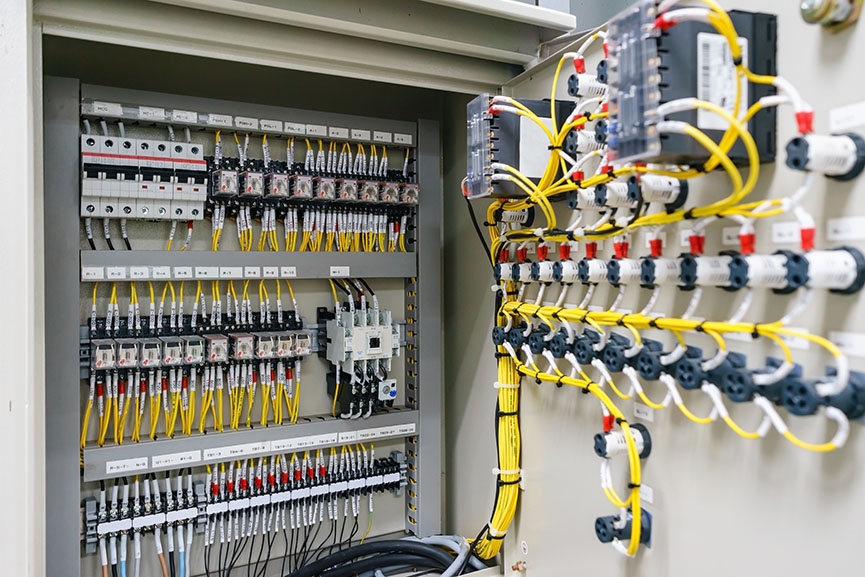IP Enclosures Explained: What They Are and Why They Matter

In today’s tech-driven world, protecting sensitive equipment is more crucial than ever. Whether you’re setting up an outdoor network cabinet or safeguarding electronics in an industrial setting, IP Enclosures play a huge role in ensuring everything runs smoothly. But what exactly are they, and why should you care? Let’s dive into the world of IP-rated enclosures and discover why they’re essential for both residential and commercial applications.
What Are IP Enclosures?
To put it simply, IP Enclosures are protective housings designed to shield electrical and electronic equipment from environmental hazards like dust, water, and other external factors. The “IP” stands for Ingress Protection, a standardized rating system that tells you just how resistant an enclosure is to elements like solids and liquids.
These enclosures come in various shapes, sizes, and materials—ranging from robust metal cabinets for industrial machinery to sleek plastic boxes for outdoor networking gear. Regardless of their form, the purpose remains the same: to keep your equipment safe and functioning at its best.
Understanding the IP Rating System
Before choosing the right enclosure, it’s important to understand how the IP rating system works. The IP rating consists of two numbers:
- First digit: Protection against solid objects (like dust or debris).
- Second digit: Protection against liquids (like water or moisture).
For example, an IP65-rated enclosure provides complete protection against dust and can withstand low-pressure water jets from any direction. This makes it ideal for outdoor installations where exposure to harsh weather is a concern.
Common IP ratings you might come across include:
| IP Rating | Protection Level | Best Use |
| IP54 | Limited dust & water spray | Indoor machinery, control panels |
| IP65 | Dust-tight & water jet resistant | Outdoor electrical equipment |
| IP67 | Dust-tight & immersion up to 1m | Marine applications, outdoor gear |
| IP68 | Dust-tight & continuous immersion | Underground cabling, heavy-duty |
Knowing the right IP rating ensures your devices remain protected in their specific environments.
💡 Why IP Enclosures Matter
So, why all the fuss about IP Enclosures? Well, they’re much more than just a box to put your electronics in. Here are some reasons why they matter:
1. Equipment Longevity
Harsh environments—whether it’s dust from a factory floor or moisture from outdoor conditions—can quickly damage sensitive equipment. An appropriately rated enclosure shields your devices, reducing wear and tear and ultimately extending their lifespan.
2. Safety First
Electrical equipment exposed to water or dust can pose serious safety risks, including short circuits and fire hazards. Using the right enclosure minimizes these risks, protecting both the equipment and anyone nearby.
3. Regulatory Compliance
Many industries are required to adhere to strict safety and environmental regulations. Using IP-rated enclosures helps ensure compliance, avoiding costly penalties and ensuring peace of mind.
4. Versatility Across Industries
From telecommunications and industrial automation to renewable energy installations, IP Enclosures are widely used across numerous industries thanks to their adaptability.
Choosing the Right IP Enclosure
With so many options available, selecting the right enclosure might feel overwhelming at first. Here are a few key factors to consider:
- Environment: Indoor or outdoor? Industrial or residential? Understanding the environment will help determine the required protection level.
- Material: Stainless steel, polycarbonate, and aluminum are common materials. Each has its own strengths depending on corrosion resistance, durability, and weight.
- Size & Mounting: Ensure the enclosure is large enough for your equipment and can be properly mounted where needed.
- Ventilation: Some devices require airflow to prevent overheating, so consider enclosures with ventilation options if necessary.
Consulting with a specialist can also help you make the right decision based on your unique needs.
Common Applications of IP Enclosures
You might be surprised by just how many places IP Enclosures are used! Here are a few common applications:
- Outdoor networking equipment: Routers, switches, and antennas often need protection from rain, dust, and extreme temperatures.
- Industrial control systems: Factories and plants use IP-rated enclosures to protect sensitive control panels from debris and moisture.
- Renewable energy systems: Solar panel junction boxes and wind turbine control units are typically housed in robust enclosures to handle outdoor exposure.
- Marine environments: Boats and docks require equipment protection from constant moisture and saltwater exposure.
No matter the application, there’s likely an IP-rated solution designed for the task.
The Future of IP Enclosures
As technology continues to advance and industries become more reliant on electronic systems, the demand for reliable protective enclosures will only grow. Innovations in materials, smart monitoring, and eco-friendly designs are shaping the future of IP Enclosures, ensuring equipment remains protected while maintaining efficiency.
Final Thoughts
Whether you’re safeguarding critical industrial machinery or installing an outdoor security system, IP Enclosures are essential for protecting your investment and ensuring reliable performance. Understanding IP ratings, selecting the right material, and evaluating environmental conditions are key to making the best choice.
Ready to find the perfect enclosure for your project? Don’t overlook the importance of proper protection—it could save you time, money, and a whole lot of hassle in the long run!

Source: IP Enclosures Explained: What They Are and Why They Matter



